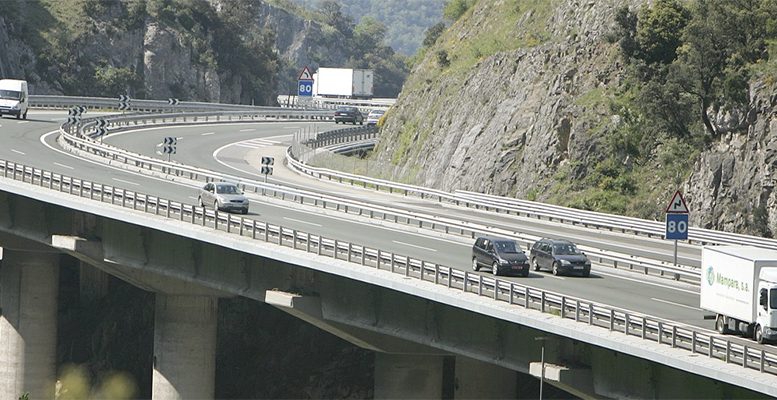“What I can tell you is that next year we will have to set up tolls, Brussels is demanding that we do so,” declared the Director General of the DGT (the Traffic Department), Pere Navarro, in an interview on TV3 last week. These tolls were included in the document the Spanish government signed with Brussels in exchange for the €70 billion in European funds granted for the pandemic. The document spoke of “the creation of a payment mechanism for the use of state roads, which will begin to operate from 2024, in accordance with the polluter pays principle”.
But, despite being a known commitment, the government has come out in force to deny it, just a few days before the general elections. According to the government, the Director General of the DGT has no competence in the matter and does not know what he is talking about.
The reality is that the Government has been studying for months the implementation of tolls on motorways, and even proposed extending this charge to all high-capacity roads, including national roads. A proposal that has now been withdrawn.
The Executive’s plan, which represented an unprecedented revolution in Spain, first envisaged testing tolls on the 12,000 kilometres of state motorways and dual carriageways, and then scaling up this payment model to the 14,000 kilometres of single-lane national roads that make up the state network, and opening a negotiation process with the autonomous communities for its implementation on the high-capacity roads under their ownership. The plan also envisaged that payment would affect all users, both private drivers and hauliers, and nationals and foreigners.
Aware that the measure would be very unpopular, the government envisaged an “awareness and sensitisation” campaign among hauliers and the public on the need to implement the payment. It advocated that fares set should be “affordable, but guaranteeing financing”. In addition, it suggested implementing “reductions or bonuses for certain less economically favoured groups, or regular users in certain stretches”. Now, however, just a few days before the general elections, the government is trying to exclude tolls from the reforms agreed with the EU. In a new document, the Ministry of Transport has proposed to simply carry out a study on what would be the best model for financing the cost of maintaining Spanish roads.
Consciente de que la medida sería muy impopular, el Gobierno contemplaba llevar a cabo una campaña de “concienciación y sensibilización” entre los transportistas y en la población en cuanto a la necesidad de ejecutar el pago. Defendía que se determinarían tarifas “asumibles, pero que garantizasen la financiación”. Además, sugería implantar “reducciones o bonificaciones a ciertos colectivos menos favorecidos económicamente, o usuarios habituales en ciertos tramos”. Pero a unos días de las elecciones generales el Ejecutivo trata ahora de excluir los peajes de las reformas pactadas con la UE. En un nuevo documento, el Ministerio de Transportes se ha planteado realizar simplemente un estudio sobre cuál sería el mejor modelo para financiar el coste de mantenimiento de las carreteras españolas





